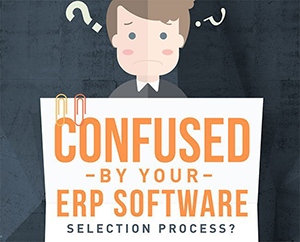Implementing an ERP Solution
Tips to Avoid Project Overruns
Implementing an ERP solution and worried about the potential of project overruns?
In most cases the project sponsor allocates a sum of money to the ERP implementation and might expect a maximum 5-10% overrun. No different to building a house or any other large scale project – you will need to manage budget, scope, variations and methodology.
There are multiple different methodologies that can be applied to implementing ERP solutions – waterfall, agile etc. Let’s focus this discussion on areas that need careful management (independent of the methodology used) to ensure that your ERP project is delivered on time and on budget.
Data – when implementing an ERP solution, it is highly likely that you will want to convert data from your legacy solution into the new ERP system. There are multiple different methodologies that can be followed when converting data. The complexity and therefore risks associated with data conversion will depend on a number of factors:
- Number of legacy solutions being used (is data being converted from one or multiple different sources),
- How clean is existing data (is legacy data in a good, clean and structured format?).
- How much data is being converted?
- Has internal company resource been allocated to work on the data conversion and ensure that thorough user acceptance testing is done?
- What data is being converted (master data, opening balances, historical data)? Manage the risks associated with data conversion by applying a structured methodology and ensuring that team members take ownership of the data collection, testing and conversion.
Reporting – yes, most modern ERP solutions offer multiple reporting options that will go some way towards satisfying your hunger for great reporting. In fact, better reporting is one of the key reasons that prospective customers consider implementing a new ERP solution. However, in many instances, your business will want reports, KPIs and dashboards tailored to your specific requirements. This is where there can be scope (and budget) creep. Every report that needs to be scoped, written, tested and deployed costs money (and time). One potential solution here is to adopt a reporting/analysis tool that has pre-written cubes and allows a user to create their own drag and drop reporting. Either way, make sure that reports are carefully scoped and detailed.
Development/integration – when implementing ERP solutions development and integration work requires its own methodology. There is a lot more to development and integration work than simply writing code and connecting it to APIs. You need a detailed functional and technical scope, user acceptance testing, user training and documentation to successfully deploy development and integration solutions with your core ERP solution.
Scope creep – if you are deploying an ERP implementation methodology that is based on a fixed scope and fixed price then you will need to manage scope creep. During an ERP implementation scope creep occurs when users ask for additional functionality that was not part of the initial scope. At first, these smaller scope changes might appear insignificant but when you add up multiple scope changes it can result in a significant impact on the budget.
Implementing ERP solutions has the potential to revolutionise your business – better cash flow, improved customer service and staff retention. Correctly scoped and implemented an ERP solution will be delivered on time and on budget. The key is to manage the scope, budget, methodology and resource. Pay particular attention to the above-mentioned items – data, reporting, development and scope creep.









Leave A Comment